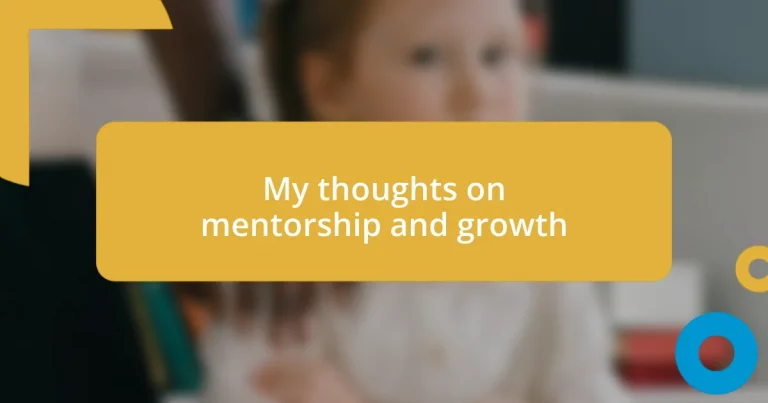Key takeaways:
- Mentorship fosters personal and professional growth through trust, emotional support, and shared experiences.
- Key qualities of effective mentors include empathy, the ability to provide constructive feedback, and a commitment to lifelong learning.
- Setting clear, adaptable goals and maintaining open communication are essential for a successful mentor-mentee relationship and measuring growth.
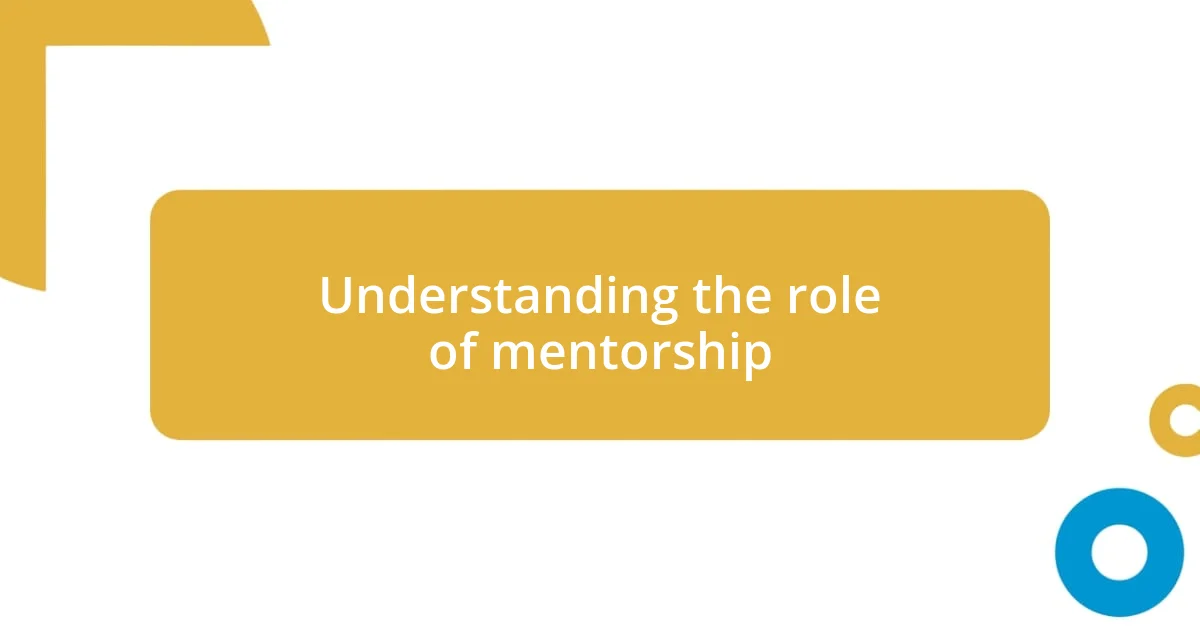
Understanding the role of mentorship
Mentorship plays a crucial role in personal and professional growth, serving as a guiding light. I remember my first mentor vividly; she believed in my potential even when I didn’t. Her encouragement opened doors I didn’t even know existed. Have you ever felt that spark of confidence someone else can ignite in you?
A mentor not only shares knowledge and skills but also offers emotional support during challenging times. I’ll never forget a particularly tough project I was working on. My mentor listened patiently and helped me navigate my frustrations. It made me realize that mentorship is about building trust and understanding, creating a safe space for growth.
The mentor-mentee relationship is a two-way street, demanding commitment and openness from both parties. I’ve learned that being a good mentee is just as important as being a good mentor. Have you thought about what you can bring to the table? It’s this mutual investment that often leads to the most significant transformations and breakthroughs.
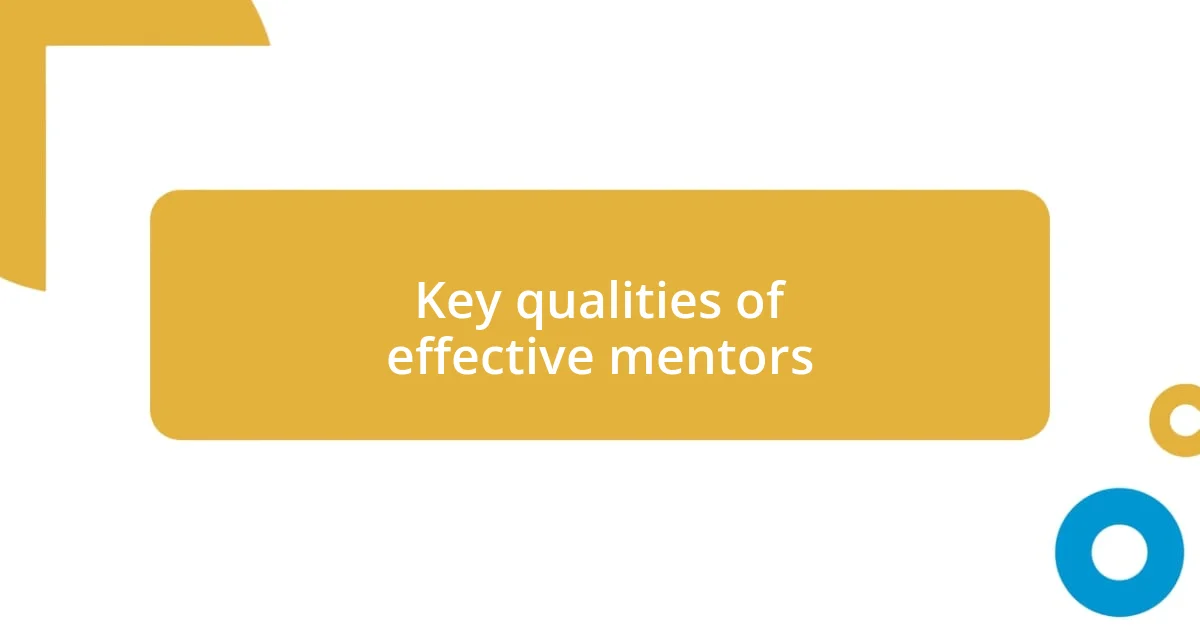
Key qualities of effective mentors
Effective mentors exhibit qualities that significantly impact their mentees’ growth. First and foremost, empathy stands out. When I think about my mentors, I remember how each of them took the time to understand my challenges, validating my feelings and experiences. This kind of emotional intelligence fosters an environment where mentees feel safe to express their doubts and aspirations. Have you experienced the power of someone truly listening to you? It can be transformative.
Another essential quality is the ability to provide constructive feedback. I recall a mentor who offered critiques that were not just critical but also actionable. They had a unique way of highlighting what I did well while guiding me on areas for improvement. It’s like having a compass that points you in the right direction. I find that mentors who balance praise with constructive suggestions help build confidence while motivating their mentees to push their boundaries.
Lastly, I believe effective mentors are lifelong learners. They keep evolving, just as they encourage their mentees to do. I’ve seen this in mentors who share new ideas and trends, demonstrating that growth is a continuous journey. This quality not only sets an example but also inspires mentees to stay curious and adaptable. Isn’t it inspiring to think of mentorship as a dynamic, ever-changing relationship that can lead to endless possibilities?
| Quality | Description |
|---|---|
| Empathy | The ability to understand and share the feelings of another, creating a safe space for expression. |
| Constructive Feedback | Providing actionable insights that encourage growth and build confidence. |
| Lifelong Learning | A commitment to continuous personal and professional development that inspires mentees. |
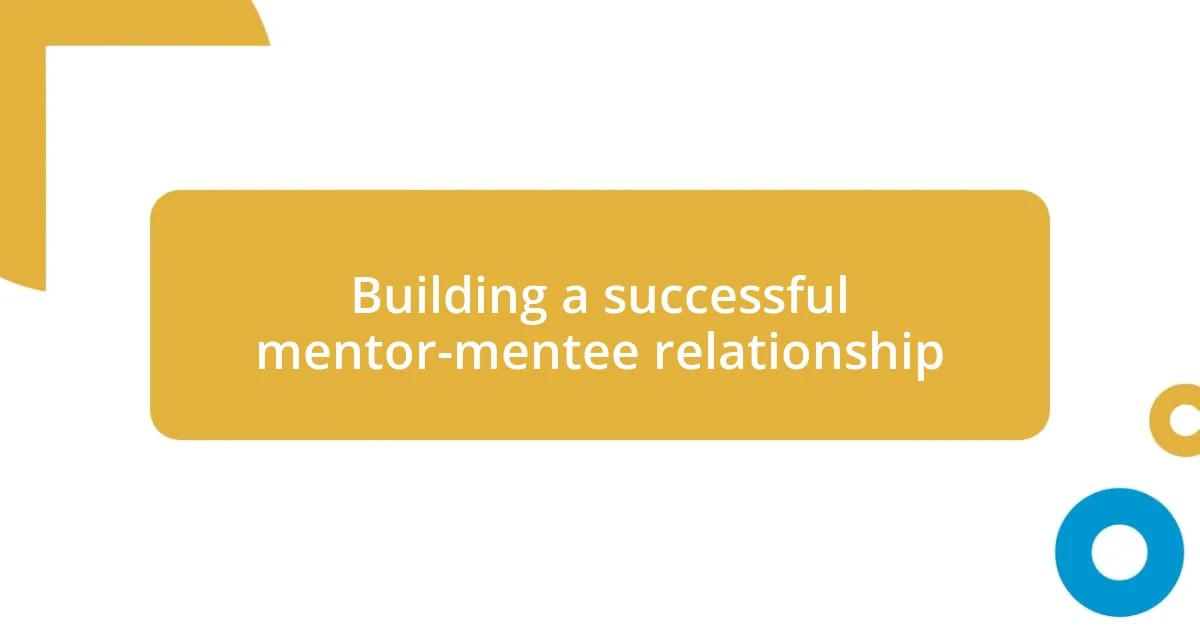
Building a successful mentor-mentee relationship
Building a successful mentor-mentee relationship relies heavily on trust and communication. When I first started working with my mentor, we scheduled regular check-ins to discuss my progress and any hurdles I faced. This open dialogue was essential; it allowed me to feel comfortable sharing both my successes and struggles. It was during one of those early discussions that I expressed my frustration with a particular skill I was struggling to grasp. It turned into a productive session where we brainstormed strategies, reinforcing the importance of candid conversations.
To foster a strong mentor-mentee relationship, consider these key practices:
- Set Clear Expectations: Early on, both parties should clarify their goals and expectations. This fosters a sense of direction and purpose.
- Be Open and Honest: I’ve learned that vulnerability strengthens the bond. Sharing fears and aspirations creates a deeper connection.
- Be Proactive: A mentor appreciates mentees who take initiative. I found that suggesting topics or areas for discussion led to more engaging sessions.
- Seek Feedback: Regularly ask for feedback from your mentor. It shows you’re invested in your growth and value their insights.
By honing in on these practices, the foundation of a fruitful mentor-mentee relationship can be solidified, making the journey of growth even more rewarding.
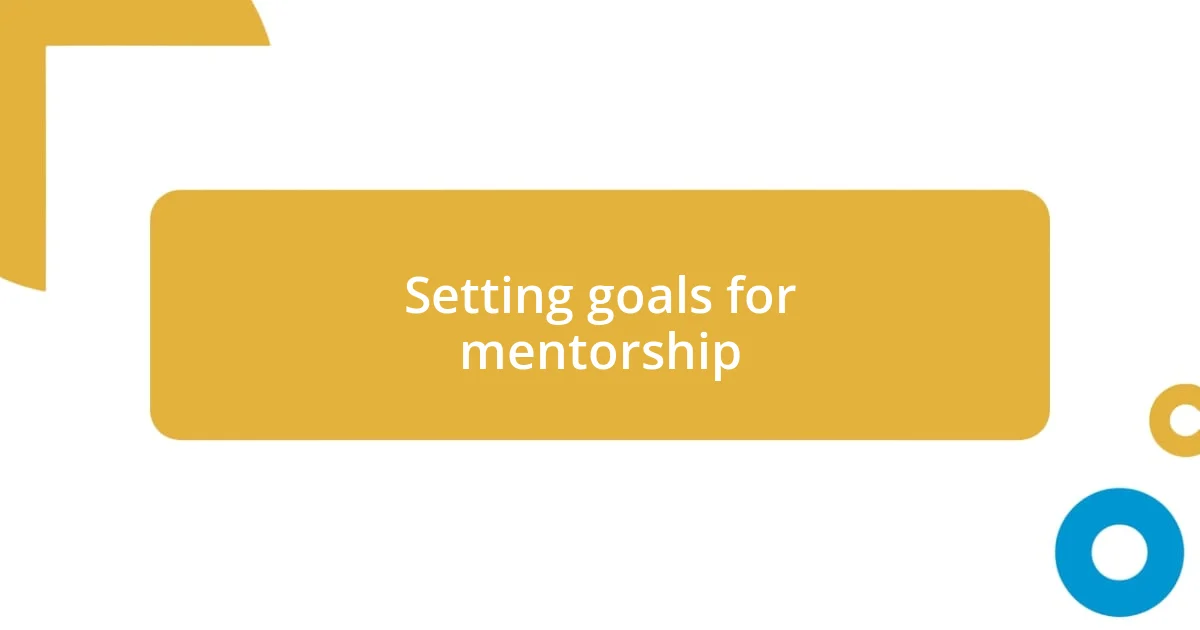
Setting goals for mentorship
Setting goals for mentorship is like charting a map for a journey. When I reflect on my own experiences, I realize how vital it is to define what I wanted to achieve from these relationships. Whether it was gaining specific skills or expanding my network, having clear goals guided my sessions and made them more purposeful. Have you ever felt lost without a clear direction? I certainly have, and it can be frustrating.
One of the most effective strategies I found was breaking my goals down into smaller, achievable steps. For instance, instead of saying, “I want to improve my public speaking,” I focused on “I want to present at the next team meeting.” This shift not only made the goal less daunting but also allowed me to celebrate small wins along the way. Each time I achieved one of these steps, I felt a rush of confidence that spurred me on to tackle the next challenge. Isn’t it fascinating how small victories can motivate us?
It’s also important to revisit and adjust these goals regularly. Situations change, and so do our aspirations. I remember one time, after a few sessions with a mentor, I discovered a newfound interest in project management. I didn’t hesitate to share this shift, and we recalibrated my goals to focus more on that area. This adaptability is crucial in mentorship—don’t hesitate to articulate your evolving needs. Have you ever experienced a change in direction that opened new doors? Embracing those moments can lead to unexpected growth.
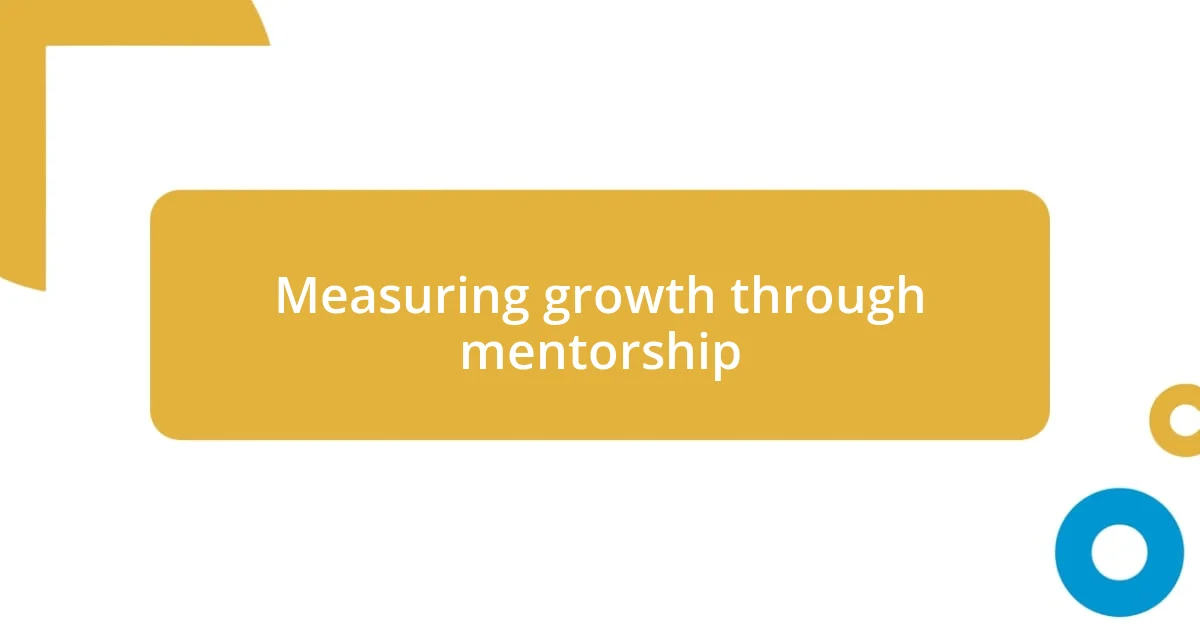
Measuring growth through mentorship
Measuring growth through mentorship is often about recognizing incremental changes. For me, it’s like looking back at a staircase; each step taken represents a new skill or insight. I vividly recall a time when I struggled with leadership decisions. My mentor helped me dissect my thought process, leading to a clear framework that I still use today. Isn’t it amazing how guidance can illuminate a path you didn’t even know existed?
Tracking progress can be both numerical and emotional. I remember when I began keeping a journal to record my thoughts after each mentorship meeting. Initially, it felt awkward, almost like I was imposing a structure on something that felt organic. However, over time, I realized that this practice revealed patterns in my thoughts and areas of conflict that I hadn’t recognized before. Have you ever completed a project and looked back at the sheer volume of what you learned? It’s those reflections that measure growth beyond mere metrics.
Sometimes, growth manifests not just in achieving goals but in how mentorship changes your mindset. I once had a mentor who challenged me to embrace failure as a learning opportunity instead of shying away from it. That shift in perspective allowed me to take risks I previously wouldn’t have dared, ultimately leading to remarkable breakthroughs. Can you remember a time when changing your viewpoint changed everything for you? It’s a testament to how mentorship doesn’t just inform but transforms.












